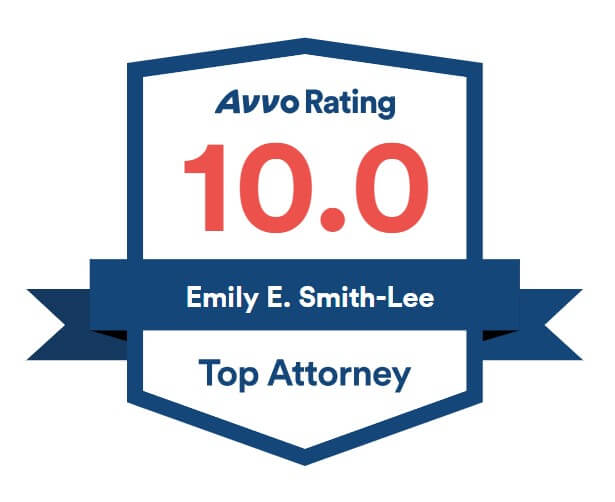The Massachusetts Wage Act and Commission Pay
Unlocking Commission Pay: Understanding Massachusetts Wage LawsIn the dynamic world of employment, commission-based compensation structures can be a game-changer. Yet, the application of Massachusetts wage and hour laws to these arrangements can often seem like uncharted territory. It's vital to grasp whether your commission pay aligns with wage and hour laws, comprehend your rights regarding prompt payment, and fathom how commission pay intertwines with minimum wage regulations.
Decoding Commission PayIncentive pay comes in various forms, sometimes labeled as bonuses or commissions. The distinction holds significance because the Massachusetts Wage Act extends its coverage to commissions but not to bonuses.
Irrespective of nomenclature, incentive pay transforms into a commission when it reflects an employee's contribution to revenue. For instance, a salesperson earning a percentage of each sale is receiving a commission. Whether it's termed as a commission or bonus doesn't matter; what counts is its function. If it functions as a commission, those amounts fall under the umbrella of "wages" and are subject to the Massachusetts Wage Act. Learn more about the difference between commissions and bonuses. Post-Termination Commission PayoutsThe Massachusetts Wage Act kicks in as soon as sales commissions are earned. The timing of earning commissions can vary based on the company's commission plan. Some plans dictate that a commission is earned when a purchase order is completed, while others stipulate that it's not earned until the customer pays for the product or service. If your commission policy does not specify this, the commission will be considered "earned" as soon as a sale is made.
Understanding when an employee earns a commission becomes especially crucial during employment termination. If the commission structure entitles an employee to a commission when an order is placed or a contract is signed, they might leave or be terminated before the company receives payment. In such cases, the company may still be obligated to pay the employee the commission. Learn more about earned commissions at termination. Minimum Wage and Commission PaymentsEmployers must tread carefully regarding the interplay between commissions and minimum wage and overtime laws.
Do commission-based employees need to be paid minimum wage? It depends. Some employees solely receive straight commissions with no base salary or guaranteed draw against commissions. In such cases, their earnings may fluctuate from week to week or month to month. Employers should ensure that their weekly earnings meet or exceed the minimum wage for the hours worked. Otherwise, employees may have legal grounds to claim the shortfall along with multiple damages. Employees paid solely on a straight commission basis, unless exempt from overtime, are also entitled to overtime pay for hours exceeding 40 per week. Recent legal rulings have clarified the calculation of the overtime pay premium, which may result in many commission-based employees not being properly compensated for overtime work. Learn more about minimum wage and commission-based employees. Navigating Deductions from CommissionsCommissions are classified as wages, subject to the same rules regarding payroll deductions. This can become intricate when the commission calculation itself involves deductions that would be unlawful if applied to straight wages. If your commission calculation includes set-offs or deductions of any kind, you should consult with an employment attorney to be sure you are not exposing yourself to liability.
Learn more about deductions from commissions. |
We're Here to Help.OR
|
Questions About Payment of Commissions?
Our Solutions Roadmap is a quick and easy way to share the details of what you are facing and receive preliminary feedback from a member of our team. Use the button below to get started- it is 100% confidential and 100% free.
Understanding the Timing of Commission Payments
Commission payments are frequently disbursed on a monthly or quarterly basis, deviating from the conventional practice of including them in regular paychecks immediately after they are earned. Despite this common approach, the Massachusetts Wage Act mandates that all wages, encompassing commissions, must be settled within six days of the prior pay period's conclusion. While the historical acceptance of monthly or quarterly commission payments has been widespread, a notable 2022 Supreme Judicial Court decision raises questions about the potential violation of the Wage Act associated with this practice.
Learn more about monthly and quarterly payment of commissions.
Learn more about monthly and quarterly payment of commissions.
Withholding Commission Payments: Legal Ramifications
Understanding the repercussions of mishandling commission payments is essential. Failure to timely pay earned commissions constitutes a violation of the Massachusetts Wage Act. Consequently, the employer may be liable not only for the unpaid commissions but also for three times that amount. Moreover, the employer might be responsible for covering all of the employee's attorney fees and costs, in addition to their defense expenses.
Another potential consequence is the possible unenforceability of an otherwise valid non-compete agreement. If employees are not paid per their employment agreement, they may argue that the agreement was breached, potentially invalidating the non-compete provision.
Another potential consequence is the possible unenforceability of an otherwise valid non-compete agreement. If employees are not paid per their employment agreement, they may argue that the agreement was breached, potentially invalidating the non-compete provision.
Pros and Cons of Commission Pay
For small business owners, integrating commissions or incentive pay into the compensation package can be alluring. Commissions serve as potent incentives for bolstering employee productivity and aligning compensation with revenue generation. This can be particularly advantageous when cash flow is a primary concern.
However, the challenge lies in navigating the uncertainty. This is especially true when a written commission plan that clarifies when commissions are earned and payable is absent. Most of these challenges can be preemptively addressed by establishing a transparent policy that ensures employees understand it and the company consistently adheres to it.
However, the challenge lies in navigating the uncertainty. This is especially true when a written commission plan that clarifies when commissions are earned and payable is absent. Most of these challenges can be preemptively addressed by establishing a transparent policy that ensures employees understand it and the company consistently adheres to it.
Meet Our Employment Lawyers

Emily Smith-Lee is the owner and founder of slnlaw. She is a 1996 graduate of Boston College Law School. She was previously a partner at the Boston office of a large international firm, where she worked for thirteen years before starting the firm that became slnlaw in 2009. She has been recognized as a Massachusetts Superlawyer each year since 2013, and in 2018 earned recognition as one of Massachusetts Lawyers Weekly's Lawyers of the Year. She has written a book on employment law: Rules of the Road, What You Need to Know About Employment Laws in Massachusetts, and helped thousands of clients on both the employee and employer side with issues relating to wage and hour laws, including overtime pay, late or unpaid wages or commissions, employee misclassification, and retaliation against employees asserting rights under the wage and hour laws.

Rebecca Rogers: Rebecca is a 2006 graduate of Boston College Law School, and has worked with slnlaw since 2013. She previously worked as an intellectual property litigation attorney for Fish & Richardson in Boston, Massachusetts, and clerked for the Massachusetts Supreme Judicial Court. Rebecca has helped clients with wage and hour disputes, including employee misclassification, late or unpaid wages or commissions, retaliation under the Wage Act, and advice to both employees and employers about wage and hour law compliance.

Jenna Ordway: Jenna is a 2013 graduate of Quinnipiac Law School, and also earned an LLM in Taxation from Boston University in 2015. She has been affiliated with slnlaw since 2011, first as a law clerk and then as an attorney. Jenna has been recognized since 2019 as a "Rising Star" by Massachusetts Superlawyers. Jenna has helped clients assess their rights under the wage and hour laws, including employee misclassification, untimely payment of final wages, late or unpaid commissions, retaliation, and advice to small business owners about wage and hour law compliance.

Elijah Bresley: Eli is a 2014 graduate of Seton Hall Law school, and has worked with slnlaw since 2020. He previously worked for a boutique employment law firm outside of Boston, and then for the Labor and Employment department of a large Boston firm. He also spent a year clerking for the judges of the Superior Court in Hartford, Connecticut. Eli has helped clients with wage and hour claims, including late or unpaid commissions, retaliation, employee misclassification, and overtime, and litigated these claims in state and federal courts. He also advises employers about employment policies and wage and hour compliance.

Sharleen Tinnin: Sharleen is a 2010 graduate of Northeastern University School of Law, and has been with slnlaw since 2023. Prior to joining slnlaw, she worked with King, Tilden, McEttrick & Brink, P.C. on complex civil litigation matters. She previously worked for the United States Department of Justice, and received an "Excellence in Justice" award in 2017. Sharleen has helped clients with multiple wage and hour issues, including retaliation, misclassification, and late or unpaid wages or commissions, and litigated these claims in state and federal courts.
How We Can Help
We can help you understand your rights and obligations as a commission based employee or a small business with employees paid on commission. You can use the button below to schedule a call back from a member of our team, or give us a call at 781-784-2322.
|
Emily Smith-Lee Rated by Super Lawyers loading ... |
Jenna Ordway
Rated by Super Lawyers loading ... |


